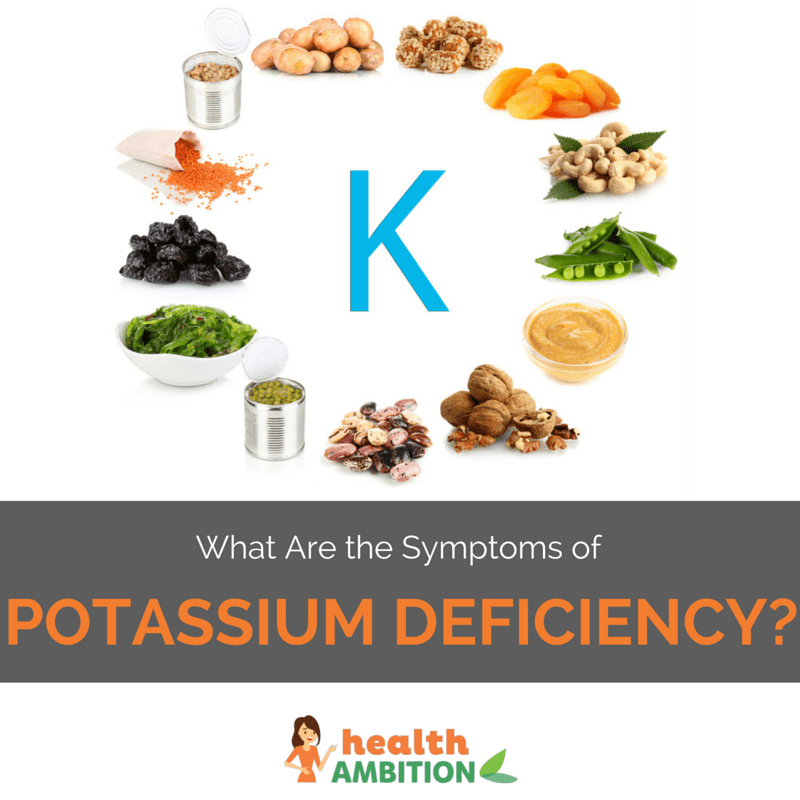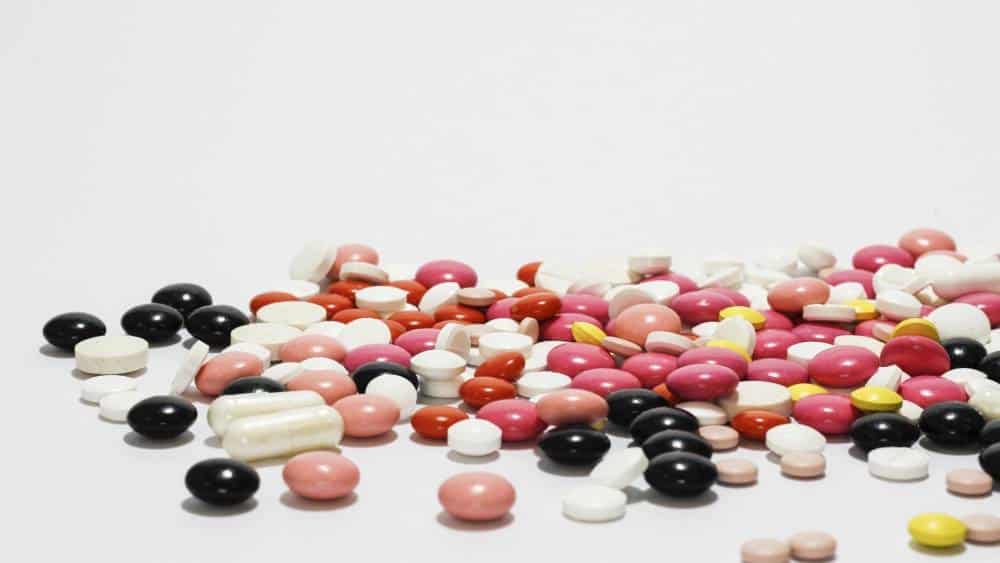
You’ve probably seen potassium listed on the back of your multivitamin tablets but did you know it’s an absolutely vital mineral? Even the smallest imbalance can wreak havoc with our cardiac, nervous and digestive systems. Luckily it’s easy to get our daily allowance of potassium by eating a balanced diet but there are a few factors that can set your levels out of whack.
Chances are, if you have a serious potassium deficiency, you already know about it as it can cause serious illness. If you are concerned about it, there are a few symptoms to look out for. If you’d like to know more, read on to find out what are the symptoms of potassium deficiency.
What is Potassium and Why Do We Need It?
Potassium is a mineral that’s essential for keeping the human body functioning. It’s necessary for most of the cells in our bodies to work correctly. Your kidneys are the main organs that are responsible for maintaining balanced potassium levels – they remove excess potassium into the urine. (source) Some of potassium’s important roles include:
- It’s involved in nerve function and muscle responses including heart and digestive muscle
- It balances the effects of salt on your blood pressure
- It’s involved in transporting of nutrients into and waste out of cells
- It’s involved in the creation of proteins
- It regulates your body’s acidity levels
(source)
If you have too much or too little potassium, it will have negative effects on your body. The medical term for excess potassium is “hyperkalaemia” and potassium deficiency is called “hypokalaemia”.
What Causes Potassium Deficiency?
Most of us get all of our recommended daily intake of potassium from a healthy diet. Potassium deficiencies are rarely caused by lack of dietary consumption of the mineral. It’s usually as a result of an underlying illness or medicine being taken. We can lose potassium via the urine or through our digestive system if something is going wrong.

Some causes of potassium deficiency are:
- Too much sodium (salt) in the diet – this increases your body’s need for potassium
- Severe diarrhea and vomiting
- Dehydration
- Digestive illnesses such as Crohn’s disease
- Many prescription medicines – including some antibiotics and most significantly a type of water or fluid pill called “loop diuretics”
- Working at a very physically demanding job
- Sweating excessively, living in a very hot climate
- Malnutrition – lack of potassium in the diet. This includes people with eating disorders such as anorexia nervosa and bulimia
- Alcoholism
- Severe infection
- Bariatric surgery (gastric band)
- Chronic kidney disease
- Diabetic Ketoacidosis
Risks Associated with Potassium Deficiency
Potassium is such a critical element in the body, it’s not something you want to mess with. An imbalance in potassium can cause severe illness. There are also numerous long term health issues associated with low potassium levels.
Low potassium levels have been linked to high blood pressure. If you have healthy potassium levels you are less prone to heart disease, stroke and heart attack. Potassium is needed for bone health, particularly in older women. A diet rich in potassium may help to prevent osteoporosis.
(source)
Symptoms of Potassium Deficiency
If you have some of the following symptoms, you may have low potassium and should see a doctor immediately to have your blood potassium levels checked.
- Feeling weak and tired
- Muscle cramps in the arms or legs
- Constipation, abdominal cramping, bloating
- Palpitations (feeling your heart beat irregularly)
- Tingling or numbness
- Nausea or vomiting
- Passing large amounts of urine, feeling very thirsty
- Fainting as a result of low blood pressure
How to Treat Potassium Deficiency
As I’ve already mentioned, if you think you might have a potassium deficiency, don’t try to treat it yourself. Always have it checked out by your doctor first to rule out serious illness. Your doctor will need to perform tests to determine the cause of your low potassium. These may include blood tests and an ECG (electrocardiogram). (source)

If you just want to check that your diet is balanced and includes a range of potassium sources, these are the foods that pack the best potassium punch:
- Fruits: Bananas, citrus fruits, avocados, cantaloupes, apples, cantaloupe, kiwi, prunes, and apricots.
- Vegetables: tomatoes, potatoes, spinach, kale, silverbeet, cucumbers, zucchini, eggplant, pumpkin, carrots, sweet potatoes, peas, broccoli, peas and winter squash
- Fish: flounder, salmon, cod, salmon and sardines
- Meats: chicken and red meat
- Others: milk, yoghurt, soy products, veggie burgers, nuts and beans
Many multivitamins contain a small amount of potassium which is usually safe for healthy people but never take a pure potassium supplement unless you have been directed to by your doctor. (source)
Cautions
There are many people for whom it is unsafe to take potassium supplements or a high potassium diet including those with kidney problems or those taking certain medications. This is why it’s important to discuss your potassium with your doctor as you may need a special diet to regulate your levels, along with blood tests. (sources 1, 2)
Conclusion
I hope this article has helped you learn more about the role of potassium in your body and symptoms to watch out for. With most vitamins and minerals, it’s safe to take supplement tablets or eat certain foods to boost your levels. Hopefully after reading the above information, you now know that potassium is a bit different and is better dealt in conjunction with a qualified healthcare professional.
Leave a comment